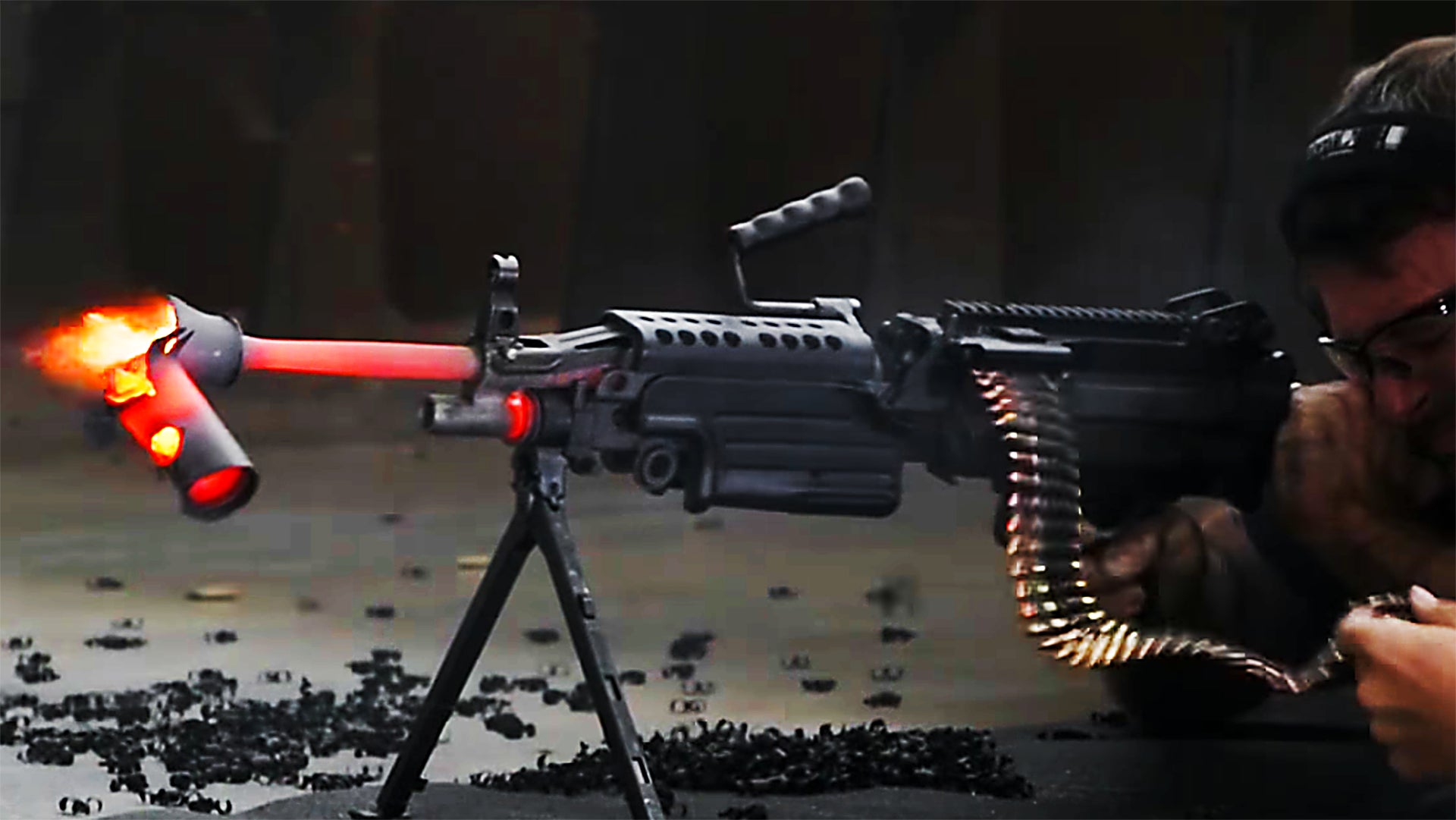Suppressors are hot items these days, both in the military and the civilian world. But they can also get very hot during extended firing periods, and can even self destruct before the barrels they are attached to do the same.
The guys over at West Coast Armory put a little video together to show what a machine gun and a lot of ammo, 700 rounds of 5.56X45 to be exact, can do to one of these sounds suppressing weapon accouterments. The results are impressive, and although the suppressor basically disintegrated, failing around 350 rounds, it gave a good fight before doing so.

Suppressors have long been popular among special operations units. With their own budgets and streamlined procurement processes, many examples of suppressors have become widespread throughout the special operations community. But over the last decade, the use of suppressors has spread to general infantry units in a limited fashion as well, and the results have been positive. Now the USMC wants to try “suppressing” an entire battalion—from its assault rifles to its 50 cals.
Major General John Love told Military.com the following about the initiative:
“What we’ve found so far is it revolutionizes the way we fight… It used to be a squad would be dispersed out over maybe 100 yards, so the squad leader couldn’t really communicate with the members at the far end because of all the noise of the weapons. Now they can actually just communicate, and be able to command and control and effectively direct those fires.”
Suppressors also help hide muzzle flash, and for smaller units, they can assist in concealing soldiers’ presence and location even during sporadic firefights. They can also help with accuracy via less audible distraction and perceived recoil. On the downside, they add weight and bulk to weapons at their long end, and can malfunction and even melt during heavy sustained fire, as shown in the video above.
An initiative to ease restriction on civilian access to suppressors is also underway via a bill dubbed the “Sportsmen Heritage and Recreational Enhancement Act,” or SHARE Act. Currently, in most cases a civilian can buy a suppressor but it requires a $200 tax stamp and has a multiple months-long waiting period for the ATF to review an application. Only after all that has been approved and processed can the civilian obtain their suppressor. The SHARE Act would largely eliminate that process and allow for suppressors to be bought “over the counter” so to speak.

If the SHARE Act were to become law, it would result in a rapid expansion of the suppressor industry, and the rapid development of new suppressor technologies could be leveraged by the military. Detractors of the bill say it would be a major win for criminals and make mass shootings even more deadly.
Contact the author: Tyler@thedrive.com
